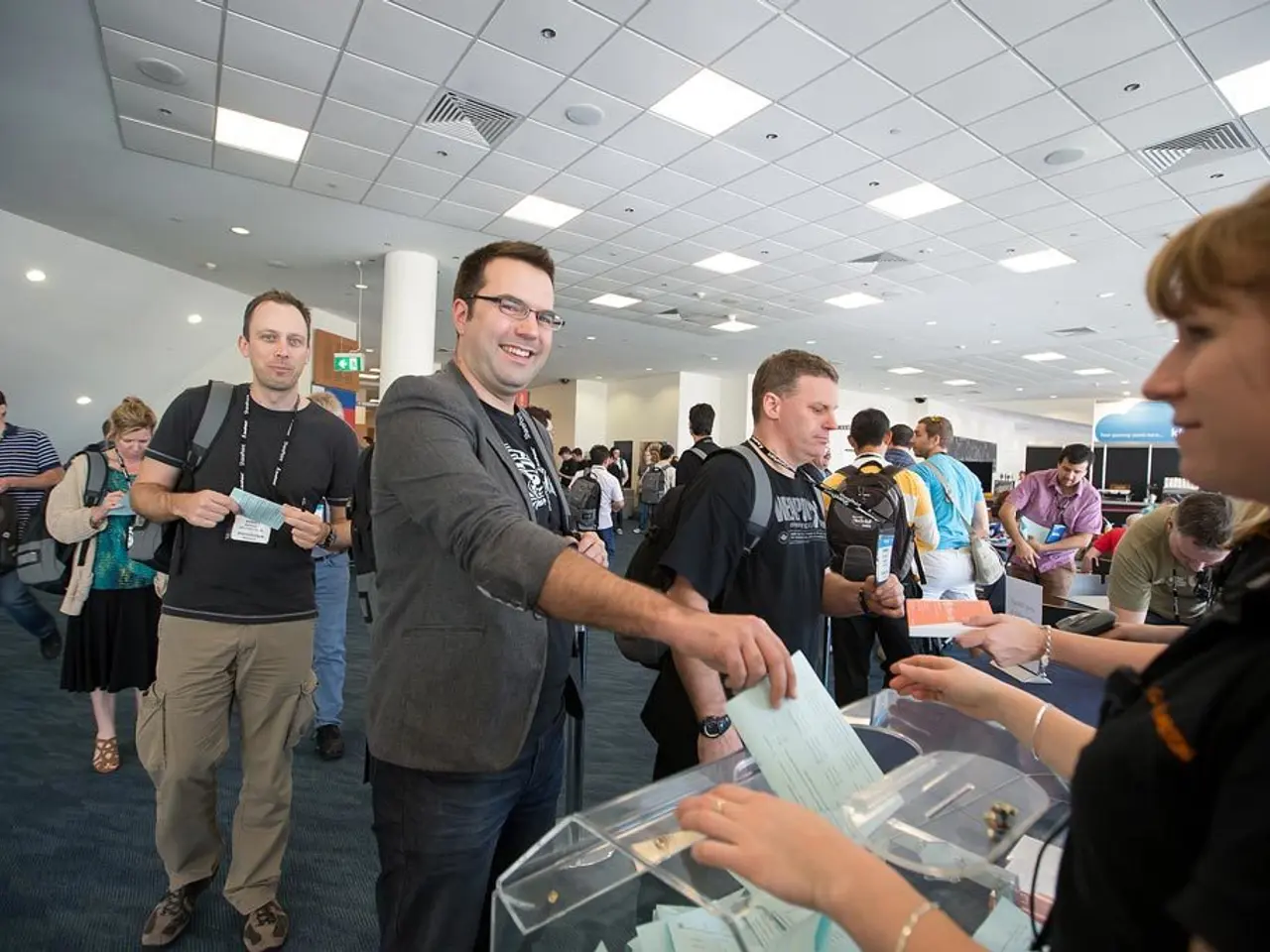Examining the Legal Framework for Cryptocurrency Exchange Operations in Hong Kong: Conditions and Consequences
Hong Kong Implements Tightened Regulations for Virtual Asset Service Providers (VASPs)
Hong Kong has introduced a comprehensive licensing regime for Virtual Asset Service Providers (VASPs), effective since June 1, 2023, under the Anti-Money Laundering and Counter-Terrorist Financing (Amendment) Ordinance 2022. This move has transformed the virtual asset landscape in Hong Kong, shifting from a voluntary to a statutory system, ensuring higher regulatory certainty and investor protection.
The Securities and Futures Commission (SFC) requires all centralized exchanges and VASPs operating in or targeting Hong Kong to obtain an SFC license and comply with stringent anti-money laundering (AML), counter-terrorist financing (CFT), risk management, cybersecurity, and consumer protection standards. This regulatory framework covers a wide range of activities including trading, custody, asset management, and advisory services related to virtual assets.
The licensing regime aligns with international Financial Action Task Force (FATF) standards, increasing compliance obligations for VASPs in the region and reducing risks of illicit financial activities. It mandates rigorous know-your-customer (KYC) processes, suspicious transaction monitoring, and reporting to Hong Kong’s Joint Financial Intelligence Unit (JFIU).
The licensing framework has several implications for VASPs. They are required to have sufficient paid-up share capital and liquid capital. Offenses involving fraudulent or deceptive devices in VA transactions can result in a fine of 10,000,000 HKD and imprisonment for 10 years.
Central to the licensing process is the application, which includes passing a 'fit and proper' test, having at least two Responsible Officers, and lodging for approval of premises to be used for keeping records or documents required under the Ordinance. Licensed companies must follow regulatory requirements including introducing AML/CTF measures, carrying out Customer Due Diligence, transaction monitoring, implementing record-keeping, screening clients against national and international sanctions and watchlists, as well as screening clients for PEP status, complying with Travel Rule requirements, and appointing an eligible auditor.
Licensed providers must appoint an eligible auditor within 1 month after getting a licensed provider and must submit an annual return and pay a prescribed fee to the commission. VASPs must also file an Annual Return with the Companies Registry.
Businesses operating without a license in Hong Kong can be fined up to 5,000,000 HKD, while senior management can face imprisonment for up to seven years. Providing false, deceptive, or misleading statements about a business's compliance status when filing a license application can result in a fine of 1,000,000 HKD and imprisonment for up to two years-on summary conviction.
The SFC requires crypto businesses to obtain a license from the Securities and Futures Commission. The Travel Rule obligations for virtual asset transfers in Hong Kong came into force on June 1, 2023. The SFC, deriving its powers from the Securities and Futures Ordinance (SFO), will be given broad powers to supervise AML/CTF and regulatory compliance by licensed VASPs, including the power to impose sanctions.
The licensing requirement arises from the Anti-Money Laundering and Counter Terrorist Financing Ordinance (AMLO). VASPs must appoint responsible officers that the SFC considers "fit and proper". For virtual asset transfers involving virtual assets that amount to less than 8,000 HKD, the required information to be transferred to the beneficiary VASP includes the information obtained and held under subsection (A), (B), (D), and (E) in relation to the transfer. For transfers over 8,000 HKD, the required information includes the originator's name, account number, address, identification details, recipient's name, recipient's account number, and other specific details.
An ordering institution should not execute a virtual asset transfer when it cannot ensure that the required information can be submitted to a beneficiary institution or intermediary institution in a secure manner. There is no capital gains tax on virtual assets, but those who trade on a regular basis may need to pay an income tax if it is considered income.
Hong Kong's position as a leading global digital asset hub is further solidified by this licensing regime, integrating investor protection measures with innovation encouragement as reflected in the government’s LEAP Framework. Recent updates, including stablecoin regulations effective August 2025, further illustrate ongoing regulatory advances to cover evolving virtual asset products within licensed institutional oversight. Overall, the regime elevates market integrity and compliance rigor, fostering a safer and more transparent virtual asset ecosystem in Hong Kong while supporting its ambitions in blockchain and tokenized finance.
The increased costs and barriers associated with licensing regime compliance could lead to large platforms consolidating the market. Offering only SFC-approved tokens could prompt some investors to seek out unapproved assets or invest in a different region altogether. However, the regime aims to enhance market integrity and reduce risks of illicit financial activities, ultimately fostering a safer and more transparent virtual asset ecosystem in Hong Kong.
- In order to operate in Hong Kong, investing businesses dealing with virtual assets must comply with the stringent regulations set by the Securities and Futures Commission (SFC), which includes adhering to anti-money laundering, counter-terrorist financing, risk management, cybersecurity, and consumer protection standards.
- The licensing framework for Virtual Asset Service Providers (VASPs) in Hong Kong also encompasses technology-driven activities such as trading, custody, asset management, and advisory services related to virtual assets, aligning with international Financial Action Task Force (FATF) standards and increasing compliance obligations for VASPs in the region.




